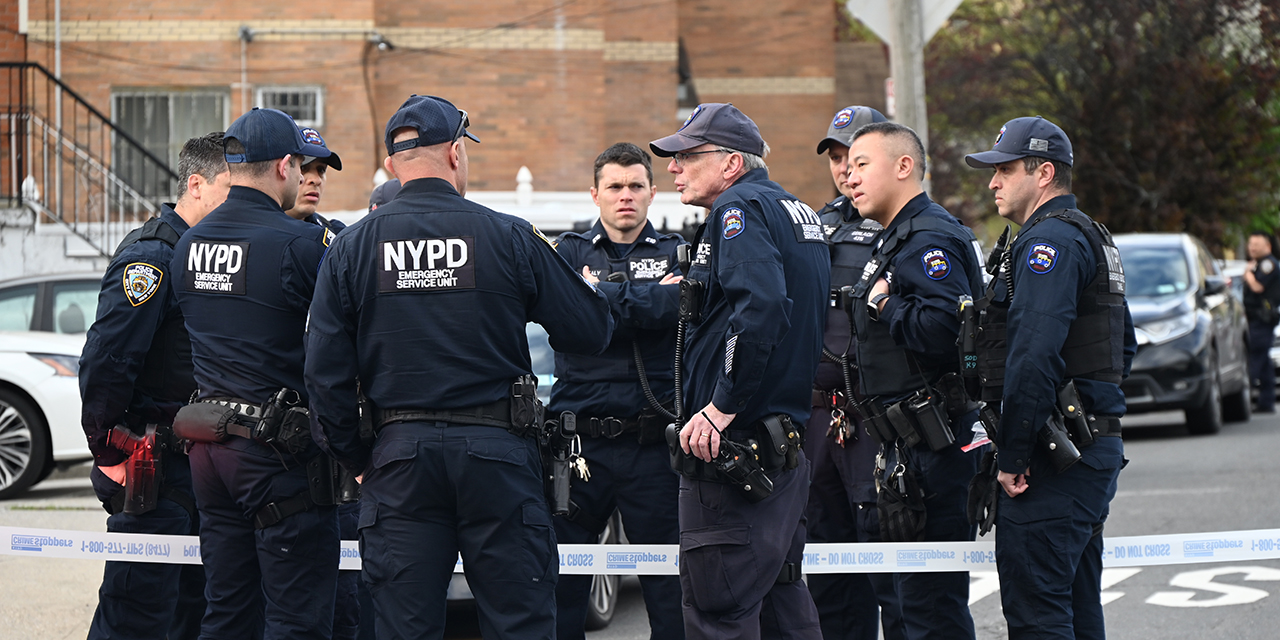He’s at it again. President Joe Biden, who told black voters at a 2012 campaign rally that Mitt Romney and the Republican Party would “put y’all back in chains,” and whose message to undecided black voters in 2020 was “[Y]ou ain’t black” if they didn’t vote for him, went back to the well of racial division during a weekend commencement address at Morehouse College. “It’s natural to wonder if the democracy you hear about actually works for you,” the president told the crowd. “What is democracy,” he went on to ask, rhetorically, “if black men are being killed in the street?” Or “if a trail of broken promises still leaves black communities behind?” Or “if you have to be ten times better than anyone else to get a fair shot?”
The idea that America is fundamentally hostile to black Americans is a pernicious lie that flouts reality anywhere you look. Ask yourself: Do the data emerging from litigation against Harvard’s and the University of North Carolina’s affirmative action programs suggest that the median black admit to those universities had grades and test scores ten times better than those of admits from other racial groups? Do the successful black professionals you know work ten times as long or hard as the similarly situated white professionals you know? Or is it your sense that American companies, universities, political parties, and nonprofit boards are making every effort to diversify their ranks—often at the expense of merit-based standards?
It’s worth remembering that the same man who gave last weekend’s dreadful speech at Morehouse made his way to the White House on a presidential ticket whose campaign slogan was “Hope and Change.” There’s an irony in that because Hope and Change is the antithesis of now-President Biden’s reelection campaign. Telling black college graduates that they will have to be ten times better than their white counterparts just to get a “fair shot” is not a hopeful message (let alone an accurate one). If anything, it seems perfectly calibrated to stoke despair.
Change is off the table, too, because, well, Biden is the incumbent—and not just any incumbent but one who has been in the White House, as either the top man or his Number Two, for 12 of the past 16 years, and who began serving in the U.S. Senate more than a half century ago. Biden’s party has enjoyed political control of one or both houses of Congress—and many state and city governments—for much of the past generation. One might reasonably conclude that, if Biden were capable of delivering change, he would have done so by now. One might also ask: Given all the power you’ve had access to for decades, why is the country still so overrun with racism, as you claim?
To the extent that things have changed for black Americans thanks to Democratic Party efforts, it’s not at all clear that they’ve changed for the better.
You can safely bet that one of the first things the president would highlight to justify his claim that the country that blacks love “doesn’t love [them] back in equal measure” is disparities in criminal-justice enforcement: black men are five times more likely than whites to be imprisoned. Black Americans are only 13 percent of the population but constitute almost a quarter of those fatally shot by police. Or he would note that black Americans use illicit drugs at the same rate as white Americans but are arrested for drug offenses at higher rates. Democrats’ approach to addressing these disparities over the past decade has been to pursue policies cutting the number of police in big cities (and hamstringing those that remain) or diverting or releasing growing numbers of criminal offenders from jails and prisons. These policies have been an utter disaster for black Americans, who have suffered the brunt of the resulting crime increases.
While unsurprising, it is nevertheless disappointing that Biden would squander an opportunity to inspire Morehouse’s class of 2024 with a message that is more hopeful, as well as a more accurate reflection of the country those graduates call home. Of course, it’s hard to sell yourself as a savior to a group without first convincing its members that they need saving. Biden’s problem is that he’s telling a group of people standing in knee-deep water that they’re drowning. Recent polling data suggest that fewer of them are buying what he’s selling in this regard. Now that’s a sign of hope and change—one that even may help detoxify American politics in elections to come.
Photo by Elijah Nouvelage/Getty Images





